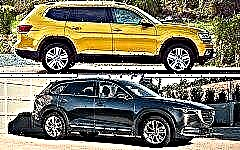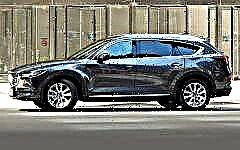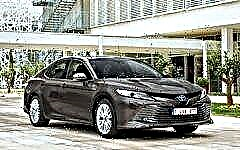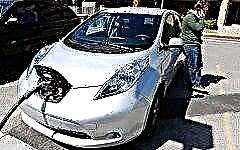

The content of the article:
- Transport tax
- Tax assignment in the budget
- European experience
The Russian government has been pondering over a strategy for the development of electric and hybrid transport in the country for several years now.
The usual measure of our officials is to introduce bans and restrictions. But in this case, the Ministry of Transport recommends not to rush and implement innovations gradually, encouraging motorists to switch to "green" transport.
One of such incentives could be a zero transport tax.
Transport tax

It is subordinate to the regional tax base, each subject independently calculates its size, procedure and payment terms. Absolutely all vehicles, even water and air vehicles, registered on the territory of Russia in accordance with the established procedure, fall under its action.
When calculating the tax rate, the following technical parameters are taken into account:
- engine power (the most important parameter);
- car category;
- year of car manufacture;
- lifetime;
- a multiplier for luxury vehicles.
Back in 2009, the government promised to abolish this tax and introduce excise taxes on fuel instead. In reality, Russian motorists received both.
Given the above, how can you calculate the tax on the same hybrid that has both gasoline and electric motors? After all, each of them has its own capacity, recorded in the TCP, with which the tax is calculated. Such is the tangled mutual responsibility.
In theory, a hybrid should only be charged for the gasoline engine. For example, in the OB van of the Lexus RX400H hybrid, the power is indicated in 211 hp, while in fact it is 272 hp. Thus, the manufacturer is documenting the gasoline engine, making the electric one “free”.
If we consider the issue from this point of view, then the owners of the same Toyota Prius pay the tax incorrectly. The combined power of both engines is 101 hp, which provides a tax category of 100 to 150 hp. However, if you look at it, the electric part is 29 hp, and the gasoline part is only 72 hp. Then the transport tax should be reasonably lower.
If the owner follows the principle and contact an expert company, obtain a technical opinion on the power of the engines and replace the PTS on the basis of this document, then the tax paid can be significantly reduced. Here are just a few of the owner will go to such troubles and additional costs.
Appointment of transport tax in the budget

Although this is not the first time a proposal to zero the tax has been voiced, the deputies are well aware that they will thereby strike a blow at the regional budget. Ideally, the purpose of the transport tax is to form a road fund in order to repair roads and build new ones. But since there is no strict control over the use of the funds raised, the authorities can direct them to close more pressing problems in the region.
And here is a paradoxical situation: the funds received from the tax are not enough to maintain the road industry in an appropriate state, so they are directed for other purposes. Thus, the deficit of the road fund grows by billions annually.
It is not clear why Russia does not want to adopt foreign experience, where the transport tax is included in the price of fuel. This measure is simple and logical: whoever travels a lot pays a lot. In addition, this is a colossal saving of resources, material and labor, because there is no need to maintain a separate staff of people involved in calculating the tax with the subsequent mailing of notifications to car owners. Administrative work will cease to be necessary and will save thousands of government rubles on salaries for all these office workers.
Unfortunately, in our country everything is always complicated and confusing. For example, the state practically does not control the fuel market; it does not know the exact figures of gasoline produced, then sold, and counterfeit, up to a liter. Although, according to official documents, everything most likely fits perfectly. Therefore, if we include tax in the cost of a liter of gasoline, this cost will instantly skyrocket into the sky. Whereas in America and Europe, the authorities can account for every drop of fuel that no one would even think of to dilute with water, like ours.
As a result, the Russians have an absolutely untenable system of calculating and levying transport tax with its subsequent misappropriation. Therefore, stickers like “I pay taxes - where are my roads” with such non-transparent taxation are quite justified.
European experience

Neighboring countries bigger than ours are advocating for improving environmental safety in the country, and therefore they are trying to stimulate their citizens to purchase electric cars and hybrids. How does it look in practice?
Austria
Exempt electric cars from monthly transport and fuel taxes.
Belgium, France, Denmark, Netherlands, Latvia
Cars that emit no more than 50 grams of carbon dioxide per kilometer into the atmosphere do not pay registration tax. Electric cars are subject to the lowest annual tax.
And in France, they additionally provide bonuses when buying a new electric car for personal use:
- with emissions in the range of 60-110 g / km, there is a discount of 750 euros;
- with emissions of 20-60 g / km - a discount of 1000 euros;
- with emissions less than 20 g / km - a discount of 6,000 euros.
Czech Republic
Hybrids and electric cars purchased for personal, non-commercial purposes are exempt from vehicle tax.
Germany, Italy
German electric cars are exempted from annual tax for 10 years from the date of first registration, Italian - for 5 years.
Greece
Exemptions of electric and hybrid vehicles from almost all payments: registration tax, luxury tax, and with an engine capacity of up to 1.5 liters - also from the annual tax.
Hungary
Removes registration tax and annual fee from electric cars. Corporate vehicles are also exempt from tax.
Ireland
Also eliminates registration tax, but for an amount not exceeding 5,000 euros for electric vehicles, and for an amount not exceeding 2,500 euros for plug-in hybrids. For standard hybrid vehicles and other alternative models, the discount is up to € 1,500. And the buyer of a new vehicle, depending on the car dealer, can receive a bonus of up to 5,000 euros.
Only electric cars pay the lowest transport tax rate.
Portugal, Slovakia
Portuguese hybrids pay only a quarter of the registration tax, Slovak hybrids - half, and electric cars are completely exempt from both it and the annual fee.
Spain
The main regions of the country have reduced the transport tax for electric cars and other fuel-efficient vehicles by 75%.
Sweden
In addition to exemption from corporate vehicle tax and an annual fee on all green cars for a period of 5 years, the Swedish government offers bonuses for the purchase of a new vehicle:
- with emissions in the range of 1-50 g / km - 2200 euros;
- in the absence of emissions - 4400 euros.
Summing up ...
Car owners all over the world are obliged to pay for the comfort of travel by personal transport, which spoils the roads and the environment. But if the majority of the taxation system is trying to think over the most flexible and fair coefficients, then in Russia they start from the most illogical indicator - engine power.
It's funny to hear about environmental protection and "green" transport, when the tax, quite frankly, does not take into account the age of the car, nor its category, nor the level of exhaust, but only the power. That is, the owner of a prehistoric wreck, which no longer fits into any standards and pollutes the air with black clouds of smoke, will pay less than the owner of a sports car.
The Ministry of Transport assures that the issue will be dealt with delicately and thoughtfully in order to gradually bring car owners to innovations. Already, many cities have received the task to develop a program of restrictions for vehicles of different categories and purposes. Most likely, trucks that will be restricted from entering city centers will be the first to be blacklisted.
Do officials understand what they want to achieve? How will the already "leaky" budget be replenished? Will such measures stimulate Russian drivers to purchase environmentally friendly cars for which there is absolutely no infrastructure in the country? One thing is clear for sure - talk about ecology is still empty.











